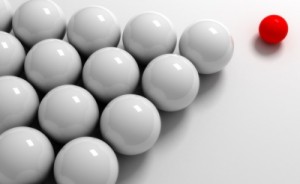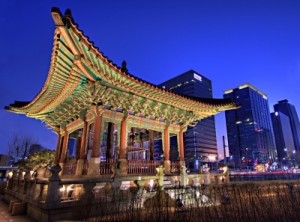Counting Units in Korean
In English, one must say, “two sheets of paper” rather than “two papers”. In Korean, the term jang (장) is used to count sheets, or paper-like material in general. So “ten bus tickets” would be beoseu pyo yeol jang (버스 표 열 장), literally, “bus ticket ten ‘sheets'”. In fact, the meanings of counter words are frequently extended in metaphorical or other image-based ways (Lakoff, 1987).
For instance, in addition to counting simply sheets of paper, jang (장) in Korean can used to refer to any number of thin, paper-like objects. Leaves (namunnip 나뭇잎) are counted using this count word. In this way, the ways in which a particular count word can be used is generally very open-ended and up to the construal or creativity of the speaker.
There are two systems of numerals in Korean: native Korean and Sino-Korean. Native Korean numerals are used with most counter words. yeol gwa (열 과) would mean ‘ten lessons’ while sip gwa (십 과) would mean ‘lesson ten.’ Sino-Korean numerals are used with many time counters.
Seoul and shopping
Seoul, South Korea has many shopping centres and markets throughout the city. The largest market is the Dongdaemun Market, which supplies stocks to thousands of retail fashion shops around the whole of Korea. Near Dongdaemun market are several large mall complexes that specialize in fashion goods of all sorts, from formal attire to casual, and from clothes to all kinds of accessories including bags and belts. Some of these are Migliore, Hello APM and Doota.
Myeong-dong is Seoul’s prime shopping and entertainment area in downtown, which contains some of the city’s top stores and fashion boutiques. The area has been subject to much investment and many of the financial institutions such as banks and investment companies are located in the area. Nearby is the Namdaemun market named after the Namdaemun Gate, a large market famous for selling “anything under the sun”. Insa-dong, a narrow street is also known for its antique stores, traditional teahouses art galleries.
Let’s get wet in Song kran Festival!!

Songkran is a Thai word that means “move” or “change place” as it is the day when the sun changes its position in the zodiac. Songkran or Water festival in Thailand is coming in mid of April between 13th -15th which is the hottest month of the year. As people believe water will clean away bad luck. In the other hand water is cool down for this hot peak season.
Before Thai is adapted to international New Year. Songkran is traditional Thai new year celebrate by visiting temples, sprinkling water on Buddha images in reverence, and sprinkling water on each other’s hands as an act of wishing good luck. During Songkran occasion Bank, office and family related business all most close. A lot of Thai resident are go back home to their family. This is an occasion for family and friend re-unions and spending time together by religion activities such as go to temple in early morning to pray and bathing the Buddha image by pour fragrant water over Buddha statues. In Thai culture is strict in respect senior people such as elder people, grandparent especially family members. A ceremony known as “Rod Naam Dum Hua” is young Thais seek the blessing of their elders by pouring scented water over their hands. After that it’s a water-throwing free-for-all – traditionally, the custom was to pour water gently over other people.





Latest Comments